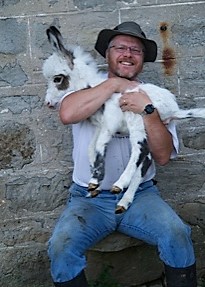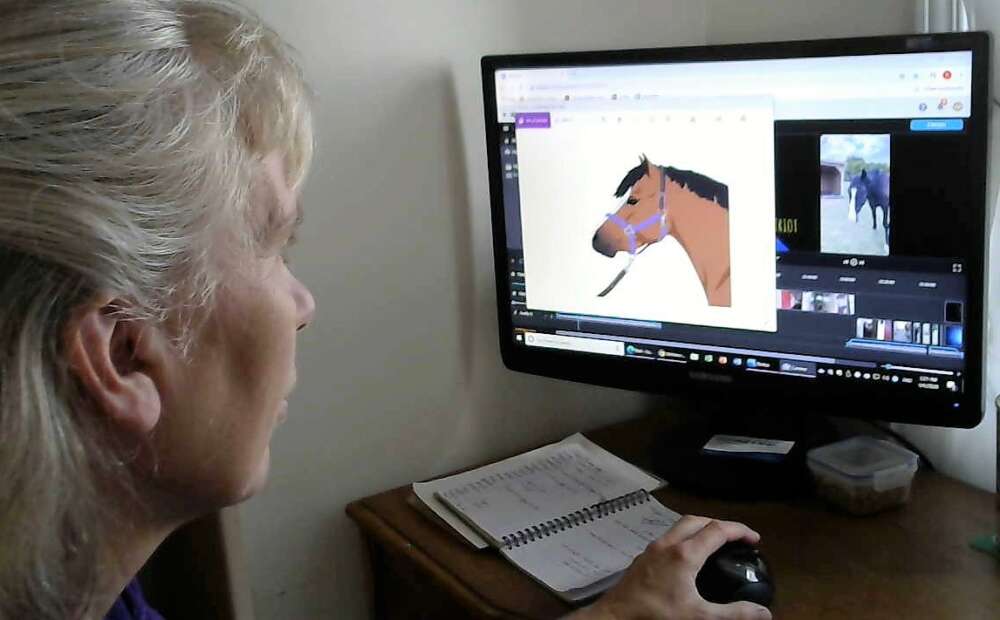
It’s not often that miniature donkeys are part of a class lecture, but Prof. Andy Robinson of the University of Guelph’s Department of Animal Biosciences hopes they will be this year.
Robinson, who teaches several introductory and advanced animal and plant biosciences courses, plans to stand in the fields of his hobby farm where he raises miniature donkeys while he conducts live videoconference lectures with students.
“Donkeys are photogenic farm animals, so I plan to do some of my video sessions with them in the background, just to add some novelty to my teaching,” he said. “I have lots of experience in animal breeding, so I hope to draw on these experiences to use as examples from real life from my farm.”
Robinson is just one of several professors in the Ontario Agricultural College (OAC) who are finding innovative ways to “bring the farm home” to students studying agricultural sciences through remote learning this fall, allowing them to learn from real farmers and growers.
The COVID-19 pandemic has pushed many OAC faculty to switch to remote teaching models, and while most OAC students won’t be working hands-on with animals on campus, they can still expect to receive high-quality training thanks to creative innovations from instructors.
Prof. Mike Steele, who teaches dairy cattle nutrition, says his students typically visit farms to collect data and speak with dairy producers. This year because of physical distancing requirements, students will work with interactive case studies and conduct online interviews with farmers.
They will learn about animal physiology and anatomy through videos, including recorded dissections, while also taking a detailed virtual tour of several dairy farms across Ontario.
“There are actually several advantages of doing things this way,” Steele said. “The footage we have put together is excellent and will ensure that the material is consistent for all students as they work on such things as performing assessments of dairy nutrition and analyzing the data.”

What’s more, the farmers that Steele works with are young and tech-savvy, so communicating through video calls and through regular updates of their social media feeds is something these farmers do anyway.
Steele also plans to make it a priority to engage and connect even more with his students this year.
“I know when my students feel accountable, they can only get more out of the course. So in redesigning my courses for remote learning, the focus has been on building those relationships,” he said.
Prof. Katrina Merkies, who teaches equine management and equine event management, has worked to adjust her courses from a model in which students worked directly with several teaching horses on campus to learn various practical handling skills.
“This year, students will come to campus for an intensive week to go through the skills, or video record themselves performing these skills on their own horse using sample videos of the skills that I have created,” said Merkies.
As part of learning about equine diseases, students will be assigned a disease and asked to present fact sheets about them virtually to their peers. Students in the Equine Event Management course will be tasked with turning the annual, day-long Equine Industry Symposium into a multi-day virtual event.
While it’s been challenging to shift to remote learning, Merkies said she feels her courses are more interactive and learner-centred now and will invite more student participation.
“I have all but abandoned the traditional lecture, and hope that my classes are more like discussions, especially since all my students have a keen interest in the subject. I have put a lot of emphasis on self-discovery, as I have a strong belief that this leads to better long-term learning.
“Our greatest strength as learners is each other,” she said. “We all have something to contribute and we all have something to learn from others. Together, we can make a vibrant learning community.”
To learn more about what the U of G student experience looks like this fall, visit the Virtual Campus page.